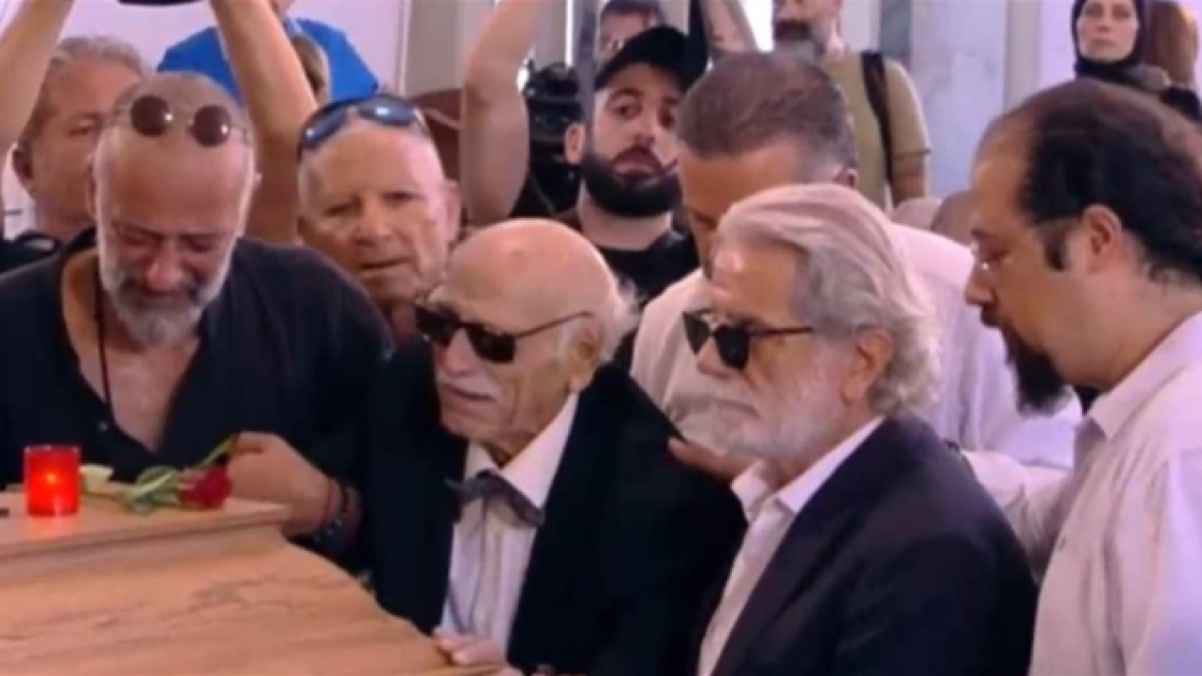Poet Talal Haidar breaks down while bidding farewell to Ziad Rahbani, cries out: "Get up" – Video

In a farewell where poetry mingled with tears, and love with pain, the Lebanese poet Talal Haydar stood to bid goodbye to the late composer Ziad Rahbani in a deeply moving scene that encapsulated a profound artistic and spiritual bond spanning decades.
Despite his fragile health, the loyal poet Haydar insisted on attending the funeral ceremony held at the Church of the Dormition of the Virgin in the town of Al-Muhaiditheh – Bikfaya, northeast of Beirut.
His movements were slow and painful, leaning on his cane, yet his tears fell faster than his steps as he approached the coffin and kissed it weeping. Then he whispered words choked with emotion: "Get up..." as if pleading for him to return to life or to reclaim the time that once united them.
Sadness cast its shadow over the ancient church, but the farewell felt like a ritual of loyalty transcending death.
Revisiting a long archive of memories
Before the laid-out body, the poet seemed to be revisiting a lengthy archive of memories, experiences, and encounters that bound him to the late composer, who was not just a musician or playwright, but a defining voice and identity in the Arab artistic conscience.
Ziad, who composed with his rare voice the features of the homeland, and wrote theatrical scenes from reality, accompanied Talal Haydar through musical and theatrical milestones that formed part of the public’s collective memory. Thus, standing before him, he saluted him as if drawing inspiration from a poem of a nation that never bowed, or a melody greeting the noble cedar.
The Lebanese composer suffered from severe liver cirrhosis, which necessitated a liver transplant. However, Rahbani completely refused the procedure, considering that remaining in the shadow of the collapse his country was experiencing was meaningless, according to media reports.
Ziad Rahbani’s farewell was more than a funeral; it was a farewell to a rebellious voice, a musical style unlike any other, and a writer who defied the status quo until the very end. Talal Haydar’s tears were not mere passing drops but the echo of an entire generation that lost one of its pillars and one of its truest melodies. At that farewell, words were not enough, for Ziad—simply—wrote his own farewell, with the same note, the same tune, perhaps in the silence of Al-Muhaiditheh church.
